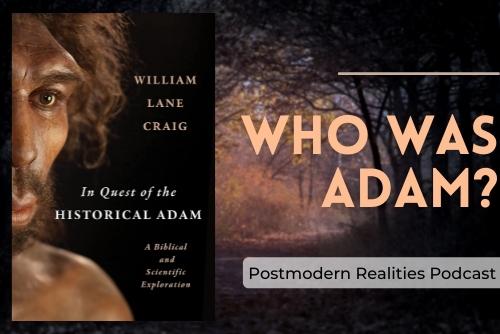
Philosopher and Christian apologist William Lane Craig’s latest work, In Quest of the Historical Adam, is an impressive, bold interdisciplinary exploration into the historicity of Adam (and Eve). Analyzing key texts in the Old and New Testaments, Craig concludes that Scripture presents Adam as a historical person and progenitor of humanity who introduced moral evil into the world through disobedience.
Craig adopts an evolutionary perspective on humanity’s origin. To reconcile a human evolutionary history with the biblical account of humanity’s creation, he makes the case that Genesis 1–11 belongs to a genre called mytho-history (a sacred mythical origins narrative that also makes allusions to real people, places, and events). Craig holds the view that it is up to modern science to determine who Adam was and when he (and Eve) lived. Based on the evidence from anthropology, Craig provisionally concludes that Adam lived between 750,000 and 1,000,000 years ago as a member of the hominin species Homo heidelbergensis.
Craig’s theological and scientific conclusions are unlikely to be accepted by many evangelicals and theologically conservative Christians. Because my training is in the life sciences, I touch only briefly on the theological concerns I have with Craig’s proposal, including the need for a stronger demarcation between myth and history. Instead, I direct most of my focus on the scientific issues — in particular, how symbolic artifacts in the fossil record provide compelling evidence that Adam (and Eve) are best understood as modern humans, who alone display cognitive capacities that reflect the image of God.
This Postmodern Realities episode is a conversation with Journal author Fazale “Fuz” Rana about his article in the ) 44:4 edition of the Christian Research Journal entitled, “Who Was Adam? (Summary Critique of William Lane Craig’s In Quest of the Historical Adam)”.
When you to subscribe to the Journal, you join the team of print subscribers whose paid subscriptions help provide the resources at equip.org that minister to people worldwide. These resources include our ever growing database of over 1,500 articles, as well as our free Postmodern Realities podcast.
Another way you can support our online articles is by leaving us a tip. A tip is just a small amount, like $3, $5, or $10 which is the cost for some of a latte, lunch out, or coffee drink. To leave a tip, click here
Other articles related to this subject:
Misreading the Book of Knowledge and the Book of Nature
Junk DNA: Evidence for Evolution or Design?
Neither Human Evolution nor Theistic Evolution
The New Theistic Evolutionists: BioLogos and the Rush to Embrace the “Consensus”
Paul, Second Adam, and Theistic Evolution
No God-of-the-Gaps Allowed: Francis Collins and Theistic Evolution
